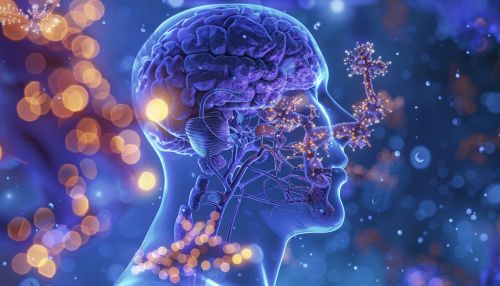Stress Physiology
Introduction
Stress physiology is a branch of physiology that studies the effects of stress on the biological systems of organisms. This field encompasses the biochemical, cellular, and systemic responses to stressors, which can be physical, chemical, or psychological in nature. Stress physiology is crucial for understanding how organisms adapt to changing environments and how chronic stress can lead to various pathologies.
Historical Background
The study of stress physiology has its roots in the early 20th century with the work of Walter Cannon, who introduced the concept of the "fight or flight" response. Later, Hans Selye expanded on this by developing the General Adaptation Syndrome (GAS) model, which describes the stages of stress response: alarm, resistance, and exhaustion. These foundational studies have paved the way for modern research in stress physiology.
Mechanisms of Stress Response
Neuroendocrine System
The neuroendocrine system plays a pivotal role in the stress response. The hypothalamus activates the sympathetic nervous system and the hypothalamic-pituitary-adrenal (HPA) axis. The HPA axis involves the release of corticotropin-releasing hormone (CRH) from the hypothalamus, which stimulates the pituitary gland to secrete adrenocorticotropic hormone (ACTH). ACTH then prompts the adrenal cortex to release cortisol, a key stress hormone.


Sympathetic-Adrenal-Medullary (SAM) Axis
The SAM axis is another critical pathway in the stress response. Activation of the sympathetic nervous system leads to the release of catecholamines such as epinephrine and norepinephrine from the adrenal medulla. These hormones prepare the body for immediate physical action by increasing heart rate, blood pressure, and glucose levels.
Cellular and Molecular Responses
Heat Shock Proteins
Heat shock proteins (HSPs) are a family of proteins that are produced in response to stress. They function as molecular chaperones, helping to refold damaged proteins and protect cells from stress-induced damage. HSPs are upregulated in response to various stressors, including heat, oxidative stress, and toxins.
Oxidative Stress
Oxidative stress occurs when there is an imbalance between the production of reactive oxygen species (ROS) and the body's ability to detoxify them. ROS can damage cellular components such as DNA, proteins, and lipids, leading to cellular dysfunction and apoptosis. Antioxidant systems, including superoxide dismutase (SOD) and glutathione, play a crucial role in mitigating oxidative stress.
Systemic Effects of Stress
Cardiovascular System
Chronic stress has significant effects on the cardiovascular system. Elevated levels of cortisol and catecholamines can lead to hypertension, atherosclerosis, and increased risk of myocardial infarction. Stress-induced inflammation also contributes to cardiovascular diseases.
Immune System
Stress can modulate the immune system in complex ways. Acute stress may enhance immune function, while chronic stress tends to suppress it. Elevated cortisol levels can inhibit the production of cytokines and impair the function of natural killer (NK) cells, making the body more susceptible to infections and diseases.
Metabolic Effects
Stress influences metabolic processes, including glucose metabolism and lipid profiles. Chronic stress can lead to insulin resistance, hyperglycemia, and dyslipidemia. These metabolic alterations increase the risk of developing type 2 diabetes and metabolic syndrome.
Psychological and Behavioral Aspects
Anxiety and Depression
Chronic stress is a well-known risk factor for anxiety and depression. The dysregulation of the HPA axis and altered neurotransmitter levels, such as serotonin and dopamine, are implicated in these mental health disorders. Stress can also affect brain regions like the amygdala and prefrontal cortex, which are involved in emotional regulation.
Coping Mechanisms
Individuals employ various coping mechanisms to manage stress, which can be adaptive or maladaptive. Adaptive strategies include problem-solving, social support, and mindfulness meditation. Maladaptive strategies, such as substance abuse and avoidance behavior, can exacerbate stress and lead to additional health problems.
Stress in Different Organisms
Plants
Plants also experience stress, which can be abiotic (e.g., drought, salinity) or biotic (e.g., pathogen attack). Stress physiology in plants involves the production of stress hormones like abscisic acid (ABA) and the activation of stress-responsive genes. These responses help plants adapt to adverse conditions and maintain homeostasis.
Animals
In animals, stress responses are highly conserved across species. For example, the HPA axis and SAM axis are present in both vertebrates and invertebrates. Research on model organisms like Drosophila melanogaster and Caenorhabditis elegans has provided valuable insights into the genetic and molecular mechanisms of stress.
Clinical Implications
Stress-Related Disorders
Understanding stress physiology is crucial for diagnosing and treating stress-related disorders. Conditions such as post-traumatic stress disorder (PTSD), chronic fatigue syndrome (CFS), and irritable bowel syndrome (IBS) are linked to dysregulated stress responses. Therapeutic interventions often aim to normalize HPA axis function and reduce cortisol levels.
Pharmacological Interventions
Pharmacological treatments for stress-related conditions include selective serotonin reuptake inhibitors (SSRIs), benzodiazepines, and beta-blockers. These medications can help manage symptoms by modulating neurotransmitter levels and reducing physiological arousal.
Behavioral Interventions
Behavioral therapies, such as cognitive-behavioral therapy (CBT), biofeedback, and stress management programs, are effective in reducing stress and improving mental health. These interventions focus on changing maladaptive thought patterns and teaching relaxation techniques.
Future Directions
Research in stress physiology continues to evolve, with emerging areas such as epigenetics, microbiome studies, and neuroinflammation. Understanding the complex interactions between genetic, environmental, and psychological factors will enhance our ability to develop personalized interventions for stress-related conditions.
